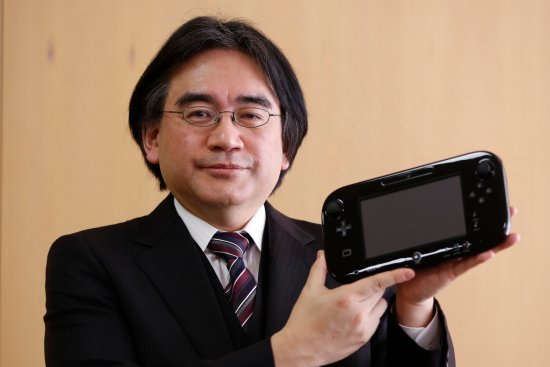
Not now, and probably never.
Use the words Nintendo and smartphone in a sentence nowadays and chances are you’re either misguidedly prognosticating or wantonly trolling. So it’s a mild surprise to see Japanese news site Nikkei reporting (in Japanese) that Nintendo plans to step into smartphones without really stepping into smartphones.
Put another way: this is one of these stories that sounds like a status quo shift, but isn’t.
In short, the piece claims Nintendo plans to do what any good company with a forward-looking (or in this case, backward-looking-catching-up) marketing department’s been doing for years: using smartphones (and tablets) as an adjunct medium to promote stuff on a bunch of other platforms, say Nintendo’s Wii U and 3DS. Any surprises there? It’s a little like realizing that the world’s full of billboards, then firming up plans to rent space.
I don’t read Japanese, so I’m trusting Engadget’s interpretation of Nikkei’s paywalled article when it describes this as Nintendo exploring the possibility of contextual material, say background narratives, videos, tours of game worlds and other promotional fare through smartphone or tablet apps. There’s additionally talk of “mini-games,” though what form they’d take, or whether they’d even be “games” is guesswork at this point.
In any event, if Nintendo starts selling IP-themed, casino-style mini-games for the sake of promoting its mainline IP that lives somewhere else, would you call that maneuver — from a company that makes its bones upending conventions (or trying to) — capitulation? Or just savvy PR?
One thing seems clear: Nothing in this piece appears to indicate that Nintendo’s planning to shift game development to smartphones. The company cares too much about controlling the end-to-end gaming experience — the interface as much as the software.
If you still doubt that, consider what Nintendo president Satoru Iwata said during a 2013 financial Q&A (my emphasis).
[time-brightcove not-tgx=”true”]…I believe that the era has ended when people play all kinds of games only on dedicated gaming systems. For example, I think it is natural that many people feel that it is more convenient to use smart devices, as opposed to dedicated gaming systems, to play games to kill a bit of time. That is to say, there are some areas in which dedicated gaming systems were once used that now have greater potential on smart devices. On the other hand, dedicated gaming systems are developed by considering the software that is designed to run on the hardware, enabling us to make unique propositions. With that in mind, my view is that the gaming market will be segregated to a fair degree. However, this does not mean that smart devices will simply compete with dedicated gaming systems. Given their growth, I feel that we should make an effort to take advantage of their existence. For instance, we already made it possible to browse Wii U’s networking service called Miiverse on smart devices. Starting with this attempt, we are discussing among us how we can expand the use of smart devices to help drive the business of dedicated gaming systems.
Update: Nintendo just clarified its position, i.e. nope to Nintendo games on smartphones (including mini-games) in a statement to Engadget, writing:
…Mr Iwata has also stated that Nintendo’s intention is not to make Nintendo software available on smart devices and as such, we can confirm that there are no plans to offer minigames on smartphone devices.
MORE: The History of Video Game Consoles – Full